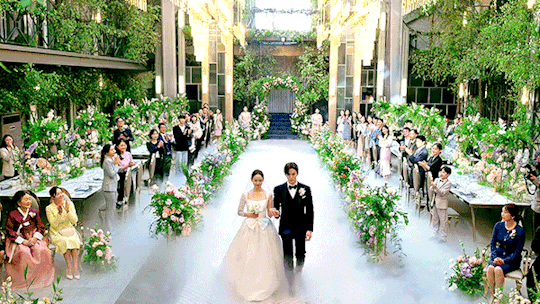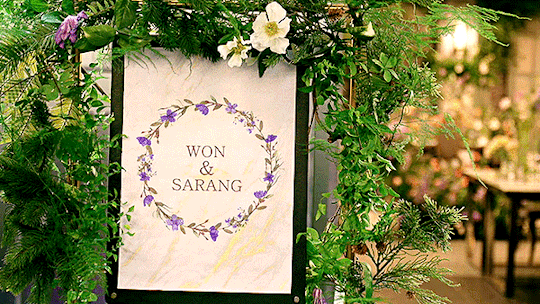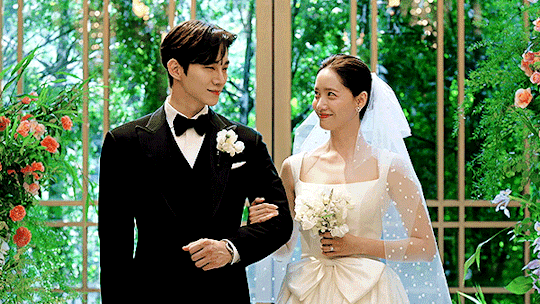#this drama/fanfiction is a pure fairy tale for a fangirl
Text










and they lived happily ever after 👰♀️🤵
#this drama/fanfiction is a pure fairy tale for a fangirl#Junho#Yoona#King the Land#Lee Junho#always next to Junho#It’s Junho’s season now#2pm#SNSD#I put my heart into every gifset I’ve made#srl I wouldn't be very curious about their relationship if they make it irl someday#who tf have thought of a snsd member gets (visually) married with 2pm member omg#whose tf idea was this
140 notes
·
View notes
Text
Authors and Fanfic
Sometimes published authors are into fanfic. Sometimes they’re not. These are their stories.

We’ll start with those who don’t like fanfic. Namely, Diana Gabaldon.
In 2010 (as far as I can tell) she went on an epic rant on her blog about how much she hates fanfic and why. There’s three whole chapters to it (not shocking from someone who writes books that could potentially be used like a concrete shoe: chain someone to it and drop them in the river, never to be seen again.) While it was eventually deleted from her blog, it was luckily saved by a few enterprising fans and is recreated on this LiveJournal page for your enjoyment.
Since I read the whole thing, I’ll give you some highlights.
“OK, my position on fan-fic is pretty clear: I think it’s immoral, I know it’s illegal, and it makes me want to barf whenever I’ve inadvertently encountered some of it involving my characters.”
“[Reasons people use in argument for fanfic] 2) I want to write, but I don’t know how to make up characters, and it seems less scary to use some that already exist, and just make up stories for them. You know…it’s practice!
I have a lot of sympathy for people who want to write. I used to want to write, and I had no idea how to develop characters. Oddly enough, the notion of using someone else’s characters never occurred to me. I just tried to do it on my own. Surprise! It worked.
Suck it up, guys. If you want to write, write—and write your own stuff. It does take courage, but that’s the only way to learn how, believe me.”
“Beyond the specific arguments against the concept remains the unfortunate fact that a terrible lot of fan-fic is outright cringe-worthy and ought to be suppressed on purely aesthetic grounds.”
“The thing is, though, that the central—the only truly vital part—of a story, and what makes it unique, is the character or characters. Everything else springs from that. In essence, a story is its characters. Therefore, while all kinds of things in a piece of writing can flow throughout the collective consciousness and inspire new work—theme, style, form, setting, mythical archetype, ideas of any kind….a character is not merely an idea. He or she is a real thing, and no less real for having no bodily presence. They do exist, even though they are embodied only in words.
Characters—good characters, “real” characters—derive their reality from the person who created them. They are the person who created them, refracted through the lens of that writer’s experience, imagination, love, fear, and craft. Another writer seeking to duplicate that character might equal—or conceivably surpass--the craft; they can’t touch the essence.
When you mess with my stuff, you’re not messing with my characters—you’re messing with me.”
OK, so that’s a lot of quotes, but it saves you from having to go on the whole journey with Gabaldon. It’s a long one and though she seems to soften a bit towards fanfic (acknowledging that she never imagined maybe it was just written out of love while still taking the shot that the reason she never imagined it is because all of it is terrible) she still ends the rant by stating, unequivocally, that she does not want fanfic written about her work.
George R. R. Martin is of the same mind, though he’s a bit nicer about it.
“I don’t think it’s a good way to train to be a professional writer when you’re borrowing everybody else’s world and characters. That’s like riding a bike with training wheels. And then when I took the training wheels off, I fell over a lot, but at some point you have to take the training wheels off here. You have to invent your own characters, you have to do your own world-building.”
Anne Rice also hates fanfic. Famously so, in the face of fandom. There’s even a fanlore page that describes the personal harassment campaign that was launched against several fanfic writers in 2000. Pretty intense stuff there.
Meanwhile, there are other authors who not only support fanfic, they still actively write it.

That’s right, Rainbow Rowell is one. She features on the Fansplaining podcast episode “Rainbow Rowell” and talks all about her fannish history and how she came to write the book Fangirl as well as Carry On (which is actually not fanfiction.)
Fangirl tells the story of Cath, a college freshman with social anxiety who is a big name in fanfic and is trying to complete a novel length fic about her favorite series, The World of Mages by Gemma T Leslie, before the final book of the series comes out while also completing her first year of college. It’s a fun coming of age story and I’d highly suggest it if you’re into that sort of thing.
It’s basically a love letter to fanfic, with Cath having to defend her writing to everyone from her professor to her best friend to her boyfriend. Apparently, Rowell came to the internet late and so she was discovering and exploring the world on online fanfic at the same time she was writing Fangirl, which adds authenticity to the book. Cath’s experience of reading and writing is very much tied to Rowell’s own.
She even admits to writing fanfic today, though she does not publish it.
“I was trying to write Landline and it was the first time I had written about an existing relationship. So Landline is a book for adults about adults, it’s about a marriage that’s kind of having a hard time. They’ve been married like 15 years and they’re having problems.
I was kind of nervous about writing an existing relationship, because I had written only falling-in-love stories, and so I decided to write a really short Harry/Draco where they’ve been in a relationship for 20 years and they have, like, grown stepchildren and this sort of middle-aged thing...
So it was kind of my experiment with, like, can I write—like, let me do this as fanfiction where I don’t feel as much pressure to pull it off. So I’ll just do this short story and I won’t show anyone and I’ll see if I can write a compelling story about two people who’ve been in love for a long time.”
Needless to say, she pulled it off. The book got written and published, though apparently the fic will never see the light of day.
Other authors aren’t so shy about their fanfic and they write a lot of it.
“[Naomi] Novik scorns the idea that published authors should turn their back on fanfiction. She recalls being on a panel where one member said he couldn’t understand why someone would waste their time writing it over an original work: “I said, ‘Have you ever played an instrument?’ He was like, ‘Yeah, I play piano’. I said, ‘So, do you compose all your own music?’”
For Novik and many other writers, fanfiction is a fundamental a way of expressing oneself, of teasing out new ideas and finding a joyous way to engage with writing again after the hard slog of editing a novel. The journey to become a published writer isn’t a straight line; it’s a spiral, as we grow older and continue to explore the characters and tropes we love.” (The Guardian)
Novik, who helped found The Organization for Transformative Works, is not shy about the fact that she writes fanfic. In fact, she considers it an important cultural artifact, according to her soundbite here. Though she asks that her fanfic pseudonym not be attached to her in the google-able sense (I couldn’t find out what it is. I think you have to know a guy who knows a guy and I apparently know no guys) she’s not shy at all about the fact that she writes it to this day.
Neither is Seanan McGuire (who is, in case you were wondering, my favorite author of all time.) She discusses fanfic at length in this GeekDad interview that is well worth a read. I couldn’t decide what snippets to quote so I’m quoting none of them. (It was that or quote all of them.) She also wrote a great...”manifesto” might be too strong a word but “essay” doesn’t convey the power of her words, for Tor.com.
“Fanfic is a natural human interaction with story. Children do it before they know its name. People who swear they would never do such a thing actually do it all the time, retelling fairy tales and Shakespearean dramas and family anecdotes in new lights and new settings. FANFIC WILL NEVER DIE. We need to acknowledge that fact: we need to accept that fanfic is never going away, and that it would suck a sack of wasps through a funnel if it did, because we need it.
So if you know someone who wrinkles their nose at fanfic, or who would tell a former fanfic author that their original fiction is somehow worth less because of their roots, or who is just generally an impacted asshole with legs, remember:
They are wrong. Fanfic is beautiful. Writing fanfic teaches you important storytelling skills. I have a funnel and access to wasps. Thank you for coming to today’s episode of Seanan Gets Mad About Things, and join us next time for No It’s Not All Porn And There Wouldn’t Be A Problem If It Was.”
McGuire especially gets into the questions of race and gender than plague fanfic (do women write more? Why? Is it considered bad because more women write it? PS, the answer to that last question is YES and McGuire’s argument is pretty solid on that front.) She doesn’t pull her punches and if you want to dive more into why fanfic is Important, I’d highly suggest checking out what she says. (And then, once you’re awed by her words check out some of her fiction!)

#fanfic#fansplaining#authors#publish#anne rice#rainbow rowell#diana gabaldon#george r r martin#naomi novik#seanan mcguire
0 notes